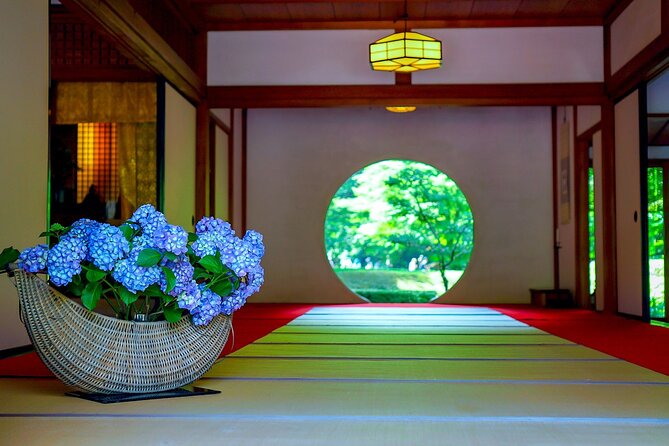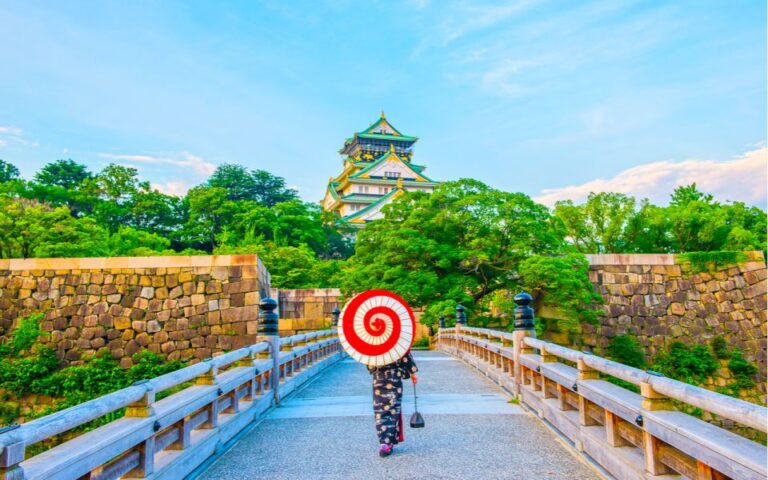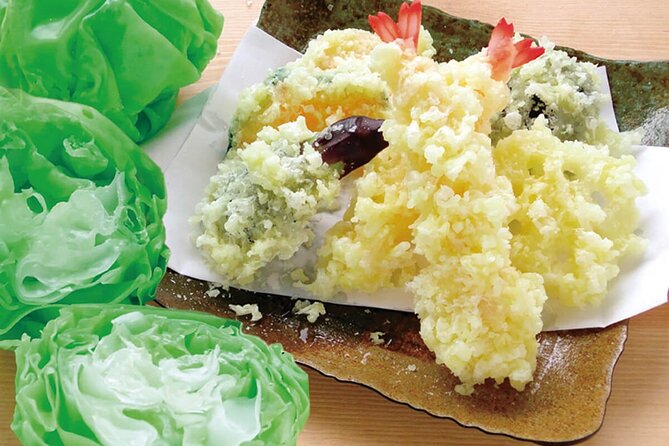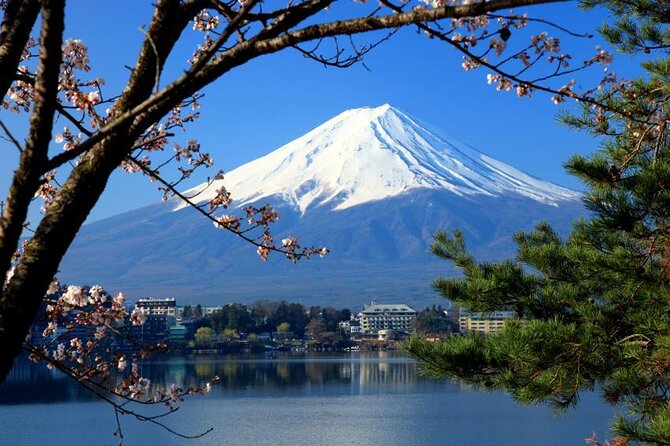Does a private tea ceremony with rolled sushi near Daitokuji truly offer an immersive and authentic experience of Kyoto’s cultural traditions?
This unique activity allows visitors to explore the art of Japanese tea and its historical significance. Led by a professional instructor, you will engage in a traditional tea ceremony, learning about the intricate rituals and practices associated with this ancient art form.
The ceremony will include the tasting of authentic Japanese green tea, providing a sensory exploration of flavors and aromas cherished for centuries. Guests will also indulge in a delectable spread of rolled sushi, showcasing Kyoto’s culinary expertise.
With its peaceful atmosphere and knowledgeable hosts, this private tea ceremony promises an unforgettable cultural journey into the heart of Kyoto’s tea culture.
Quick Takeaways
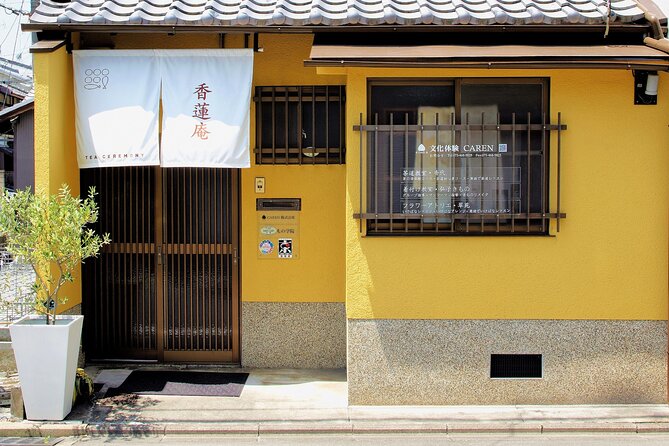
- Kinkaku-ji Temple is a UNESCO World Heritage Site and one of Kyoto’s most beautiful temples.
- Visitors can participate in a traditional tea ceremony and taste authentic Japanese green tea.
- The tea ceremony provides insights into the history and culture of tea in Japan.
- The experience includes a professional instructor, lunch, alcoholic beverages, and the opportunity to expand knowledge about tea culture.
Overview of the Private Tea Ceremony
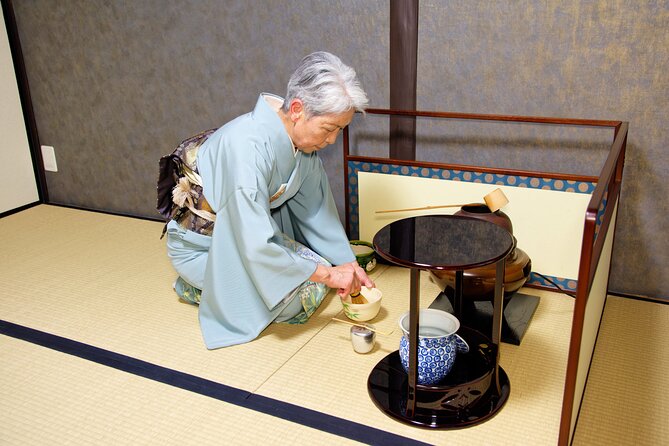
The private tea ceremony provides participants with an immersive experience, allowing them to explore the rich history and cultural significance of tea. This hospitality experience offers a unique opportunity to witness and engage in the traditions of Japanese tea culture.
Hosts create a warm and welcoming atmosphere, making guests feel truly valued and appreciated. The ceremony isn’t just about serving tea; it’s a cultural experience that teaches the importance of tea in Japanese society. Participants are enlightened about the secrets and rituals of the tea ceremony, gaining a deeper understanding of its significance.
Alongside the tea, delicious and authentic Kyoto food is served, enhancing the overall experience. The hosts’ knowledge and friendly demeanor contribute to the peaceful and serene ambiance, leaving participants feeling grateful for the opportunity to share in this ancient tradition.
Experience the UNESCO World Heritage Site
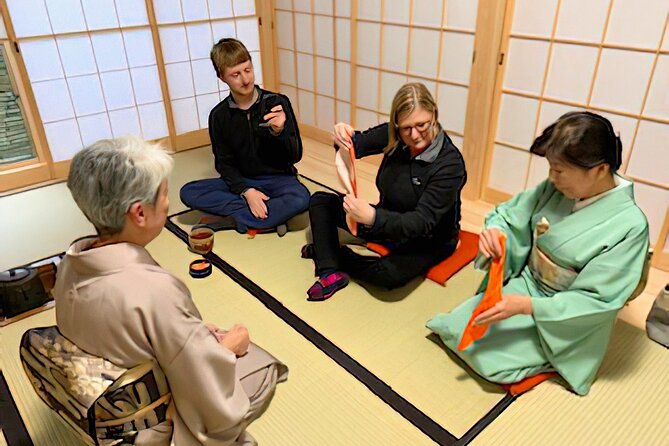
Visitors can enjoy the UNESCO World Heritage Site of Kinkaku-ji Temple while participating in the private tea ceremony near Daitokuji. This unique experience offers a perfect blend of cultural exploration and tranquility. Here are some insights into the tea ceremony and the temple:
- Historical Significance: Kinkaku-ji Temple, also known as the Golden Pavilion, is renowned for its stunning architecture and picturesque surroundings. It holds great historical and cultural significance in Kyoto.
- Tea Ceremony Insights: The private tea ceremony provides a deep understanding of the art of tea in Japan. Participants can learn about the rituals, techniques, and philosophy behind this ancient practice.
- Zen Garden Serenity: The tea ceremony takes place in a traditional Japanese tea house surrounded by a serene Zen garden. This peaceful atmosphere enhances the overall experience, allowing visitors to find inner peace and tranquility.
- Cultural Immersion: By participating in the tea ceremony, visitors can truly enjoy Japanese culture, gaining a greater appreciation for its traditions and customs.
Participate in a Traditional Tea Ceremony
How can participants fully enjoy the traditional tea ceremony experience near Daitokuji in Kyoto? Participating in a traditional tea ceremony is not just about sipping tea, but also about following tea ceremony etiquette and understanding the cultural significance of tea ceremonies. The participants are encouraged to enter the tearoom with a respectful and humble mindset. They should remove their shoes and bow before entering. Once inside, they can expect to be seated on tatami mats and served a bowl of matcha, powdered green tea, which is carefully prepared by the tea master. The participants can observe the meticulous movements of the tea master as they whisk the tea and serve it to each guest. As they savor the tea, they can reflect on the tranquility and harmony that the tea ceremony represents. The moment becomes an opportunity to connect with oneself and appreciate the beauty of the present moment.
| Tea Ceremony Etiquette | Cultural Significance of Tea Ceremonies |
|---|---|
| Remove shoes and bow before entering the tearoom | Represents respect and humility |
| Observe the movements of the tea master | Symbolizes grace and precision |
| Savor the tea and reflect on the moment | Promotes tranquility and mindfulness |
Taste Authentic Japanese Green Tea
Tasting authentic Japanese green tea during the private tea ceremony near Daitokuji allows participants to savor the rich flavors and experience the cultural significance of this beloved beverage. Here are four reasons why this experience is a must-try:
- History of Japanese Tea Ceremony: The tea ceremony, known as ‘chanoyu’ or ‘sado,’ has a long history in Japan dating back to the 9th century. It’s deeply rooted in Zen Buddhism and is considered a form of meditation.
- Cultural Significance of Tea in Japan: Tea plays a significant role in Japanese culture, representing harmony, respect, purity, and tranquility. The ceremony itself is a symbol of hospitality and a way to connect with others on a deeper level.
- Authentic Flavors: Participants will have the opportunity to taste authentic Japanese green tea, which is known for its vibrant green color, fresh aroma, and delicate taste. The tea is carefully prepared using traditional methods, ensuring the highest quality and a truly authentic experience.
- Immersive Experience: The private tea ceremony provides a unique opportunity to take in Japanese traditions and customs. From the serene surroundings to the graceful movements of the tea master, every aspect of the ceremony is designed to create a peaceful and memorable experience.
Enjoy Rolled Sushi Near Daitokuji
During the private tea ceremony near Daitokuji, participants can indulge in the savory delight of rolled sushi. As part of this immersive experience, a sushi making demonstration is provided, allowing guests to learn the art of creating this traditional Japanese dish.
The sushi is expertly prepared using fresh ingredients, including a variety of fillings such as fresh seafood, vegetables, and pickled radish.
As participants savor the delicious rolls, they can also appreciate the historical significance of Daitokuji Temple. Established in the 14th century, this temple is renowned for its Zen gardens and exquisite architecture. Its rich history adds an extra layer of cultural depth to the tea ceremony and sushi experience, leaving participants with a greater understanding and appreciation for Kyoto’s heritage.
Meet and Pickup Information
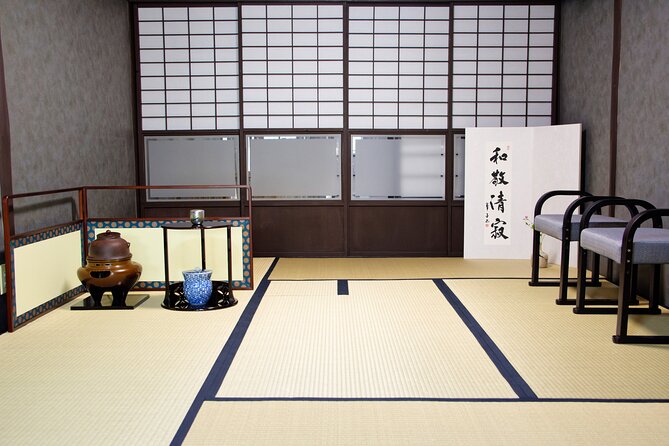
Participants in the private tea ceremony with rolled sushi near Daitokuji can easily meet and be picked up at the designated meeting point in Kyoto. Here is the meeting point and directions to get there:
Meeting Point:
- Address: 17-2 Murasakino Kamisekiryūchō, Kita Ward, Kyoto, 603-8211, Japan
Directions:
- Take the subway Karasuma Line to Kitaoji Station, then walk west for 20 minutes.
- Alternatively, you can take bus No. 9 from Kyoto Station or bus No. 37 from Sanjo Keihan-mae to Shimotoritacho Station, then walk for 2 minutes.
Please note that the activity ends back at the meeting point. If you need to cancel, a full refund is available if done at least 24 hours in advance.
Enjoy the convenience of meeting at the designated point and embark on this immersive tea ceremony experience near Daitokuji.
Positive Reviews and Feedback
Receiving high praise from participants, the private tea ceremony with rolled sushi near Daitokuji has garnered positive reviews and feedback. Participants highly recommend this experience, describing it as wonderful and excellent.
They appreciate the hospitality and atmosphere, with hosts who make them feel welcome and take good care of them. The cultural significance of the tea ceremony is highlighted, with participants expressing gratitude for the opportunity to experience these great traditions and learn about the importance of Tea Culture in Japan.
The delicious and authentic Kyoto food, along with the delicious tea and sushi, are also mentioned positively.
Common questions
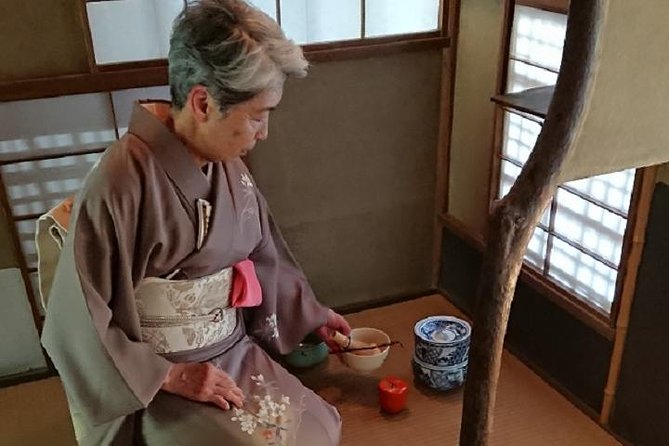
Is the Tea Ceremony Suitable for Children?
Yes, the tea ceremony is suitable for children. It provides a cultural experience and teaches etiquette. Children can learn about the history and traditions of tea while enjoying the peaceful atmosphere.
Can I Take Pictures During the Tea Ceremony?
Yes, guests are allowed to take photos during the tea ceremony. However, it is important to follow cultural etiquette and ask for permission before taking pictures, as to not disrupt the peaceful atmosphere.
Are There Any Restrictions on Clothing for the Tea Ceremony?
There are no specific clothing restrictions for the tea ceremony, making it accessible for all. It is suitable for children as well. Participants are encouraged to wear comfortable attire to fully enjoy the experience.
How Long Does the Tea Ceremony Usually Last?
The tea ceremony usually lasts about 1 to 1.5 hours. It is a serene and elegant experience, where guests can learn about tea ceremony etiquette and enjoy the rich history and culture of tea.
Can I Bring My Own Tea to the Ceremony?
No, participants cannot bring their own tea to the ceremony. The tea served during the ceremony is carefully selected and holds cultural significance. This ensures an authentic and meaningful experience for all participants.
The Sum Up
To sum it up, the private tea ceremony near the famous Daitokuji temple in Kyoto offers a unique and immersive experience into the rich traditions of Japanese tea.
Led by a professional instructor, participants have the opportunity to learn about the intricate rituals and practices associated with this ancient art form.
The ceremony includes the tasting of authentic Japanese green tea, as well as indulging in a delectable spread of rolled sushi.
With its peaceful atmosphere and knowledgeable hosts, this cultural experience promises to be truly unforgettable.


